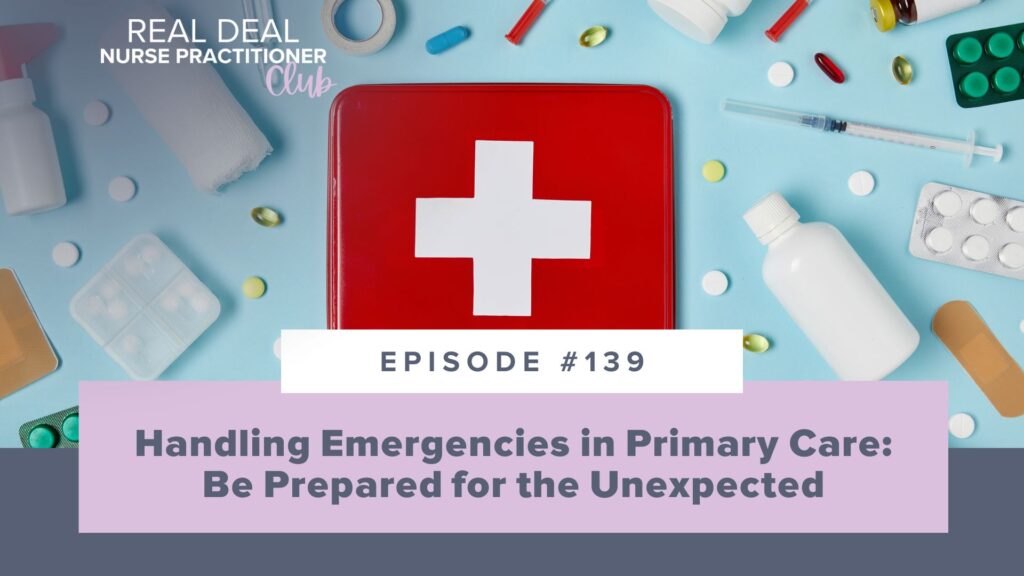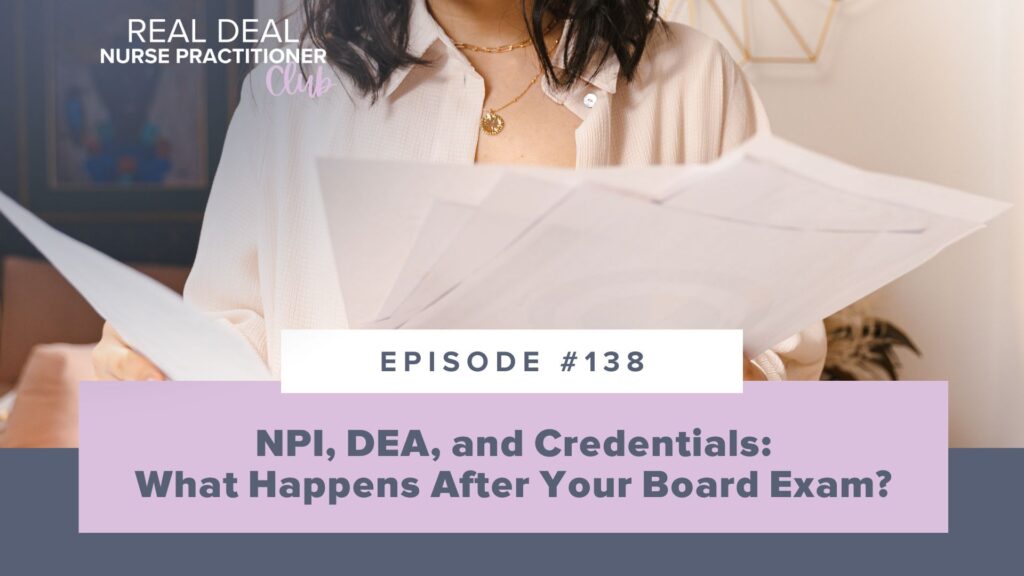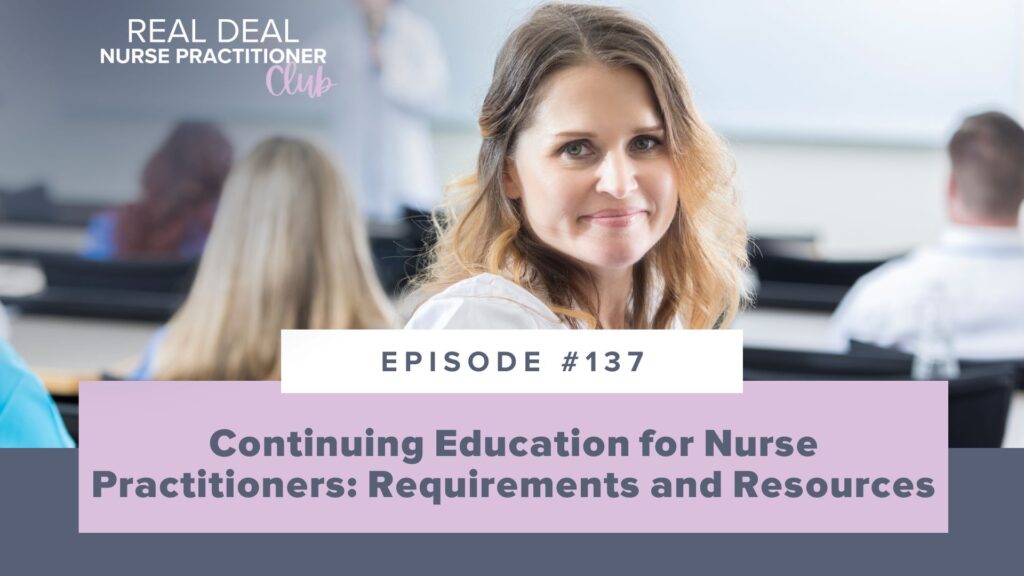Ep #41: The Job Interview Process [NP STUDENT]
- by
- Nov 10, 2021
- Podcasts
![SMNP Blog - Ep #41: The Job Interview Process [NP STUDENT]](https://blog.npreviews.com/wp-content/uploads/2023/04/BASFNP041_YouTube.jpg)
Acing the job interview process is a hot topic in the new NP world. This is something I cover heavily in my job hunt course, but I’m taking a deep dive into it today because I know so many of you are out there on what feels like an endless search, and I want you to be ready to seize any opportunity that comes your way.
I know that getting an interview can feel like a lot of pressure. Having been both a new NP on the job hunt and now an employer who has hired multiple new NPs and clocked hours of interviews, I’ve got insight on both ends of the spectrum that I think will help you walk in feeling as confident and sure of yourself as possible.
On this episode, I’m giving you my top tips and recommendations for how to be best prepared for a job interview. I’m sharing the types of questions that will likely be asked, where new NPs often get caught out in the interview process, and how you can begin practicing your interview skills right now.
I have communities available for both students and new nurse practitioners. In these communities, we work to uplift one another and grow this profession together every single day. If this kind of support is what you need, I invite you to join! Click here if you’re a student, and click here if you’re a new NP.
What You Will Discover:
- The 2 cardinal things you have to be thinking about when you go into an interview.
- What I’ve learned about the interview process both as a new NP and as an employer.
- How to be best prepared for a job interview.
- Where new NPs often get trapped in the interview process.
- How to present yourself in the best way possible in a job interview.
Featured on the Show:
- If you’re looking for extra support, I have communities available for both students and new nurse practitioners. Click here if you’re a student, and click here if you’re a new NP!
- Epocrates
- Medscape
Full Episode Transcript:
Welcome to Becoming a Stress-Free Nurse Practitioner, a show for new NPs and students that want to pass their board exam the first time and make that transition from RN to NP as seamless as possible. I’m your host Sarah Michelle. Now, let’s dive into today’s episode.
Hey, hey, my friends. Today we’re going to be talking about a hot topic in the job search world, the interview process. This is a topic I cover heavily in my job hunt course. But I definitely wanted to do a podcast episode about this as well, because I know how many of you feel like you’re on that endless job search out there. And so getting the opportunity for an interview can feel like a lot of pressure, and may lead you overthinking it just a little bit.
I really want you to walk into your next interview, feeling as confident and prepared as possible. But I also want to encourage you right from the very beginning to view every interview as a learning opportunity. There are no bad interviews, there are only learning opportunities.
And equally as important, I want you to remember that not only are you being interviewed, but you’re also using this time to interview the employer as well. And I think those are the two cardinal things that we need to internalize and be thinking about before we start talking about the actual interview process and what that looks like and how to best approach it when that time comes.
So to start us off with this episode, I think it’s important to mention that I have two perspectives on interviewing that I may flop back and forth between in this episode. I have my experience as a new graduate nurse practitioner and getting multiple job offers. And so I have my personal side of the interview spectrum.
On the flip side, though, I also have the perspective of the employer because the majority of my team members within my company are nurse practitioners. We receive resumes constantly. I’ve done hours and hours of interviews and so I also know what I hope to see from a candidate and what really draws me away from some candidates. But I wanted to make it abundantly clear in the beginning as I transition between these two perspectives, so that you can follow along and there’s no confusion.
The first thing I like to mention about interviews is to come prepared. And I know you’re probably thinking yourself, “Okay, generic advice.” But I’m serious, and you should take it seriously too. There is always a chance that you’re going to be blindsided by something in your interview. So number one, let’s prepare for as many possibilities as possible.
And what I mean by that is that you may get scenario based clinical questions, you may get behavioral based questions. And the most likely scenario is you’ll get a little bit of both. But if you walk into that interview only prepared for behavioral based questions and then they hit you with a clinical question, you might stumble a little bit.
And so you need to be running through potential answers for both styles of questioning. And we’re going to discuss a little bit later some specifics on how to answer questions appropriately.
Number two, and this is something I look at on my end because I have a couple of off the wall interview questions for potential employees. Number two is don’t get flustered if this happens. Let’s say you get a question that you’ve never really thought about before or you’re unsure of an appropriate response.
Do you freeze? Do you rush through an answer just to get through it? Or do you pause, collect yourself, and answers to the best of your ability? I always take note of the interview candidates that pause instead of trying to plow through that question. Because that tells me on my end, they’re considerate, they’re insightful, they truly want the job, and that is exactly the kind of candidate that I’m hoping for.
When it comes to specific questions, there are likely questions that you will always be asked in every interview. These are some of those more generic icebreaker type questions like tell me about yourself or tell me why you became a nurse practitioner, or tell me why you’re interested in this role, et cetera. And then alongside that, you’re likely to get some behavioral based questions like, tell me about a time that you dealt with a difficult patient situation.
I feel like at this point in our careers, we’ve all been asked that question 75 times and we’re going to continue to be asked that question. And so how do we answer it appropriately? What is the interviewer really asking you in that situation?
What they’re doing is assessing your emotional intelligence. You have to be really aware of how you answer these behavioral style questions because they give insight into how you manage conflict resolution, but also oftentimes how you perform as a colleague and how you’re going to present yourself within their company when things are going awry.
And so these questions, the best thing that you can do, and the most appropriate way to display that emotional intelligence is to be objective. And what I mean by that is leave the emotions out of it and stick to the facts.
We really dive deep into this in my job hunt course using a specific technique, but essentially what you do is remain objective the entire time in your answer. We don’t state opinions, we keep it straight to the facts. And so it can be difficult to do this the first time or two that you practice it. But after that you kind of fall into the rhythm and the cadence.
So for example instead of saying, “This patient was always a difficult patient with a poor outlook and so it was no surprise that he wanted to talk to management that day about his care.” You could instead say, “This patient had concerns with this particular aspect of his care, and therefore requested to speak to management. When I assessed the situation, I found that the patient had misplaced his morning medications.” And you can kind of go on from there.
I only said facts. It feels like a minute switch, but I promise it makes all the difference in displaying yourself as the professional that you already are as a nurse practitioner. And is really just a little tweak on the cadence of how you present it and ultimately how you present yourself.
Outside of behavioral based questions, you may see some of those clinical content based questions too. They’re asking you these type of questions to assess your knowledge base, your confidence level, and those critical thinking skills. Don’t overthink these questions, that’s where new nurse practitioners get trapped in the interview a little bit.
If you’re not sure right away of an answer, that’s totally okay. And you can even say, “In this scenario I may reference a source such as Epocrates or Medscape in order to verify the plan of care, but this is the plan that I would execute based on the information given.” Which sounds a lot better than, “I’m not sure. I don’t know.” Or just not answering the question at all.
The best way to prepare for this job interviewing is to run through some common patient scenarios that may present wherever you’re applying. For example, if you want to work in a diabetes clinic, look up some plan of care options for those with type two diabetes, including lifestyle management and medication management. And definitely medication management when you’re struggling to get that diabetes under control.
Another example is a primary care office. People always tell me with this type of interview they don’t know how to prepare because they feel like they can be asked about anything. And while that’s technically true, you will likely be asked about those typical primary care complaints, such as hypertension, or acute cough, or something along those lines. And so you most definitely can still prepare even if it’s a more generalized practice.
Walking into that interview feeling prepared will definitely enhance how you answer questions and how you are perceived throughout your interview. If you’re terrified, it’s going to show. And so let’s do everything we can to present you in the best light possible and with the most confidence possible.
Now something that should go without saying, and I’m going to say it really quickly and I’m not going to spend too much time on it, dress professionally for your interview. I know we all hate business casual. I hate business casual. But to go back to presenting yourself in the best way possible, that is part of the package.
I do not want to hear you wearing scrubs to interviews. Even if your interview is on Zoom, you should be business casual at least from the waist up. And definitely if your interview is on Zoom let’s clean up the area around you, let’s make sure pets are out of the way, not in the room, et cetera, all that good stuff.
But to get back on track, I have two more things I want to mention about the interview process. At the end of your interview you should always have some questions prepared. That shows preparation and intent that you want the job, assuming that at the end of the interview, this is still a job you want.
Remember, you’re interviewing them too. But that’s a totally different episode and topic for another day. So don’t overthink it at the end, you can literally ask anything. You could ask, “What’s a typical day in this practice like?” If they haven’t answer that for you already.
One question that my team member was asked recently in an interview was what’s her favorite part of working for my company? I thought that was a great question that kind of lended to some great insights on both ends. Another question I super love is asking what challenges that the practice is facing, because maybe you have a great idea or solution to whatever that big challenge is.
I mean, the list is endless here. Just be sure to ask something because what you’ll be able to do with what you asked is mention it in your follow up thank you card.
The final part of the interview in my mind is thanking them for taking the time to interview you within 24 to 48 hours of that interview so you’re still fresh in their minds. Because ideally at that 24 to 48 hour mark, they’re going to be more likely to continue to follow up with you on their end.
Now if you’re a person who listened to this episode and you need some more interview practice, you have a couple of options for trying out the skills that we’ve mentioned so far. You can most definitely call up a nurse practitioner friend or maybe a co-worker, basically anyone that would really give you some constructive feedback and knows what an interviewer might be looking for in this field, and literally just practice all this out loud.
I definitely always recommend some out loud practice, even if it’s just to yourself, so you can be comfortable with your answers. You don’t want to sound scripted, but you want the opportunity to make tweaks as needed based on how you’re feeling as you answer.
Outside of that, you can also do my job hunt course. Because one of my favorite parts of the entire course, is there is a video of me doing a mock interview. And so the way that it works is I pose a question to you in my video, I ask you to pause and answer it for yourself. And then I answer it for you in an appropriate and professional way so that you can see how your answer measured up to my answer.
I also do a little bit of demonstrating in that video about virtual interviews where we look at my lighting, my background, my appearance, and just having myself centered in the Zoom camera, which is also pretty important.
In my brain, every little thing counts when it comes to an interview, and I wanted to be able to show you what I felt was the most optimal way to interview and then ideally get that job that you are wanting so badly. The interview is truly the ticket to seizing that job opportunity and so I really want you to be as prepared and ready to go as possible for when the day comes.
And that’s it for this week, guys. I am sending all of you out there interviewing now or interviewing soon, tons of positive vibes to get you through. You can do this, and as always, I cannot wait to hear when you do. I love going to a new NP Facebook group and seeing all of you guys getting jobs and really starting into your careers. It’s literally the best feeling. But I’ll talk to you guys next week.
As an extra bonus, friends, if you’re looking for support no matter what phase of your nurse practitioner journey that you’re currently in I have communities available for both students and new nurse practitioners. In these communities, we work to uplift one another and grow this profession together every single day. Links to join will be included for you in the show notes.
Thanks for listening to Becoming a Stress-Free Nurse Practitioner. If you want more information about the different types of support we offer to students and new NPs, visit https://www.npreviews.com/resources. See you next week.
Enjoy the Show?
- Don’t miss an episode: follow the podcast on Spotify, Apple Podcasts, Stitcher, or RSS.
- Leave a review in Apple Podcasts.
Search the Blog
Prepping for Primary Care NP Boards?
Join our Primary Care Live Study Group or check out the Self-Paced Courses & Qbank options!
Learn MoreExplore Specialty NP Qbanks & Mock Exams
Practice with board-style questions for your AGACNP, PMHNP, ENP, WHNP, or PNP exams.
Get StartedJoin our Facebook Group!
Get FREE support and encouragement from thousands of FNP/AGPCNP students and our NP support team.
Join the CommunitySign Up for Free Live Classes
Join us for FREE monthly live study sessions covering topics such as antibiotics, diabetes, musculoskeletal conditions, depression & anxiety, and more!
Grab a Spot



